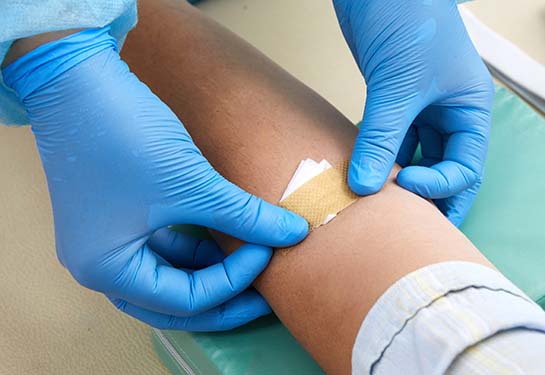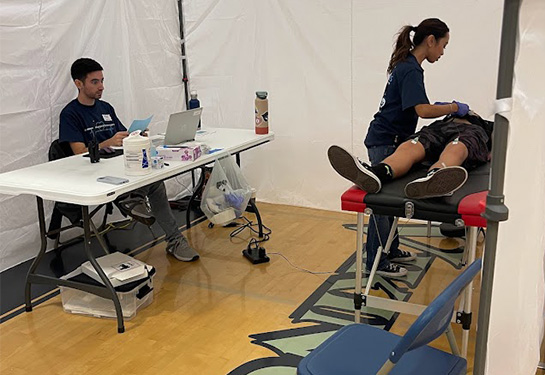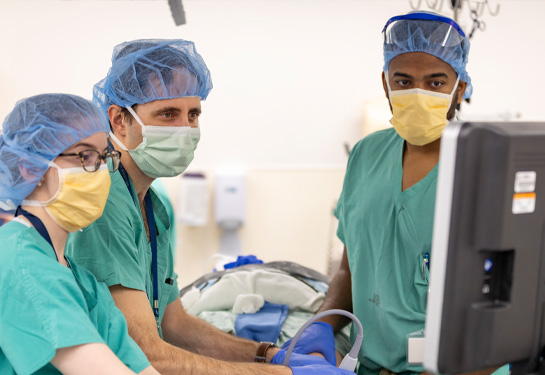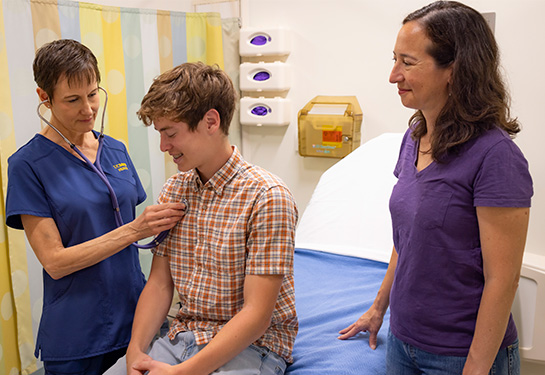The blood supply shortage: Why it’s happening and how you can help
For several weeks, the American Red Cross has been reporting a severe blood shortage nationwide. This shortage, the worst in over a decade, could last into the summer. UC Davis Health has been looking for ways to stretch the available blood supply, encourage blood donation and buffer the supply chain.
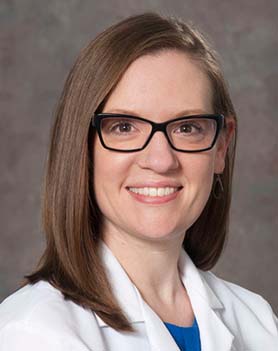
Medical Director of Transfusion Services, Sarah Barnhard, shares details about the crisis and what strategies UC Davis Health is exploring to address it.
Why is this happening?
As with everything over the last couple of years, COVID-19 has magnified supply chain volatility, particularly in systems with underlying vulnerabilities. The blood supply has been growing increasingly fragile for several decades. In 2019, for the first time since the Centers for Disease Control and Prevention and Health and Human Services began reporting trends in the National Blood Collection and Utilization Survey, the national number of red blood cells distributed essentially matched the number of red blood cells transfused. Reporting began in 1992.
If you don’t maintain a buffer between donation and transfusion, there will be inherent shortages in the supply. There has been a longstanding struggle to engage a newer generation of blood donors.
The pandemic added additional constraints such as the fact that blood drive events have been scaled down or cancelled all together due to restrictions on large gatherings. In addition, the blood industry is not immune to the staffing shortages that have plagued businesses across the country in the wake of the pandemic. There is also a shortage of trained health care workers.
The Red Cross declared a national blood crisis on January 11, 2022 and activated an emergency appeal for blood donors on the same day.
How is this shortage different from those in other years?
One way this situation is different from prior shortages is some suppliers have been forced to put limits on how much blood each health care system or hospital can order, in order to ensure the largest number of hospitals have some of the limited supply. For patients, this means some surgeries may be delayed, if a large amount of blood products is likely to be needed during the procedure. It also means hospitals may face challenges if there are large demands on the blood supply, such as a mass casualty incident or a similar emergency.
Are all blood types affected by this shortage?
Yes. There is a critical shortage of all blood types.
How is UC Davis Health ensuring that it has enough blood for patients?
Teamwork is key. Donors are responding to the emergency appeal, which has helped tremendously, but we still expect days of possible deficit. We have kept our focus on institution-wide communication and advanced planning for as many transfusions as we can.
We are working closely with surgery and anesthesia to prepare for scheduled procedures that are likely to require transfusion support. For services such as trauma and obstetrics that care for patients with unexpected hemorrhage, we have plans in place to divert resources to them if needed.
UC Davis Health is also holding additional blood drives for our employees and running a public service announcement campaign to promote blood donation.
What kind of planning is UC Davis Health doing to ensure patient care isn’t affected?
Our goal is for our patient care not to be impacted, so we are leaving no stone unturned looking for ways to buffer the impact. We are working to secure new supply contracts and to facilitate resource sharing. We are now working with an online platform that facilitates the distribution of blood products. Additionally, we are developing ways to share resources between UC hospital campuses and with other institutions.
What can we all do to help?
Barnhard: If you are donor, or eligible to become one, please donate at a location near you. Any donation – wherever donated – will help sustain this important product for patients.

